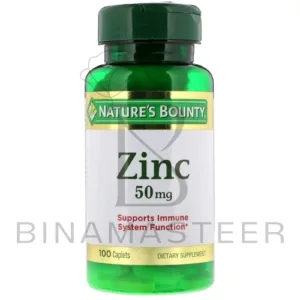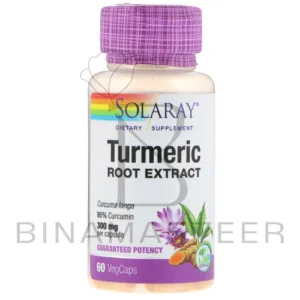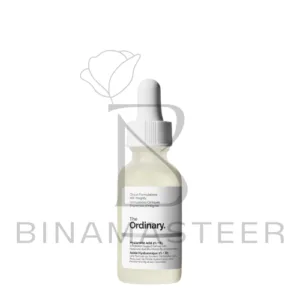news
Vitamins & Minerals: A Deeper Dive into Deficiency and Optimal Health
In our fast-paced world, the concept of a balanced diet can often feel like an unattainable ideal. We are increasingly reliant on processed foods and quick meals, which can leave us with a silent but significant problem: nutrient deficiencies. While a mild deficiency might not cause immediate, life-threatening symptoms, it can silently compromise our energy levels, immune function, and long-term health. A deeper understanding of the specific roles of vitamins and minerals, the signs of deficiency, and the path to achieving optimal levels is the key to unlocking true vitality. This guide goes beyond the basics to explore how micronutrients function at a cellular level, the most common deficiencies, and the strategies for moving from “just enough” to “thriving.”

The Cellular Symphony: How Micronutrients Work
Vitamins and minerals aren’t just a list of things we need to eat. They are fundamental players in the intricate biochemical reactions that sustain life.
- Enzyme Co-factors: Many vitamins and minerals act as co-factors, helping enzymes perform their jobs. Without them, thousands of reactions in the body—from DNA synthesis to energy production—would grind to a halt. For example, magnesium is a co-factor for over 300 enzymes.
- Antioxidant Power: Nutrients like Vitamin C, Vitamin E, and selenium are powerful antioxidants that neutralize free radicals, unstable molecules that can damage cells and accelerate aging.
- Signaling Molecules: Some vitamins, like Vitamin D, act more like hormones, signaling to cells to perform specific functions, such as absorbing calcium.
The Silent Signs of Deficiency
Many vitamin and mineral deficiencies don’t have dramatic symptoms right away. Instead, they manifest as subtle, chronic issues that we often dismiss as normal fatigue or stress.
- Fatigue and Weakness: A very common sign of a deficiency in Iron, Vitamin B12, and Vitamin D. These nutrients are crucial for energy production and oxygen transport.
- Weak Immune System: If you get sick often, it could be a sign of low Vitamin C, Zinc, or Vitamin D, which are all vital for immune function.
- Poor Skin, Hair, and Nails: Brittle nails can point to a lack of Biotin or Iron. Dry, flaky skin could signal a need for more Zinc or Omega-3s.
- Bone and Muscle Issues: Frequent muscle cramps can be a sign of low Magnesium or Potassium. Weak bones could indicate a deficiency in Calcium or Vitamin D.
Common Deficiencies in the Modern World
Despite a generally high food availability in many parts of the world, certain deficiencies remain widespread.
- Vitamin D: This is one of the most common deficiencies globally. Lack of sun exposure, especially in winter, and the use of sunscreen contribute to this.
- Iron: Particularly common in women of childbearing age due to menstruation and in vegetarians/vegans who may not consume enough easily absorbed heme iron.
- Magnesium: Widespread in Western diets, which are often low in whole grains, legumes, and nuts. Stress can also deplete magnesium stores.
- B12: A major concern for vegans and vegetarians, as B12 is found almost exclusively in animal products. Older adults also have trouble absorbing B12.

The Path to Optimal Health
Moving from a state of deficiency to optimal health requires a strategic approach.
- Dietary Assessment: Start by honestly evaluating your diet. Are you eating a wide variety of colorful fruits and vegetables? Are you getting enough lean protein and whole grains?
- Blood Testing: The most accurate way to know if you have a deficiency is through a blood test. A doctor can check for common deficiencies like Vitamin D, B12, and iron.
- Targeted Supplementation: Based on your blood test results and a healthcare professional’s advice, consider targeted supplementation to correct any deficiencies.
- Prioritize Nutrient-Dense Foods: Focus on “food first.” Fill your plate with nutrient-dense foods like leafy greens, colorful berries, legumes, nuts, and seeds.
The Synergy of Nutrients
Remember, nutrients don’t work in isolation. A holistic approach is best.
- Pairing for Absorption:
- Iron with Vitamin C: A glass of orange juice with an iron-rich meal (e.g., lentils) can significantly boost absorption.
- Vitamin D with Calcium: To ensure the calcium you consume is properly absorbed and utilized by your bones.
- Healthy Fats with Fat-Soluble Vitamins: Consuming healthy fats (like those in avocados or olive oil) with foods rich in Vitamins A, D, E, and K will help your body absorb them.

Conclusion: A Conscious Choice for Long-Term Vitality
Our modern lifestyle, characterized by stress, convenience foods, and reduced sun exposure, presents a unique challenge to our nutritional health. A proactive approach—understanding the vital roles of vitamins and minerals, being aware of the subtle signs of deficiency, and making conscious choices about our diet and supplementation—is no longer an option but a necessity. By nourishing our bodies at a cellular level, we can transcend a state of mere survival and unlock a new level of energy, resilience, and vitality, ensuring that our health is not just maintained but truly flourishes.

